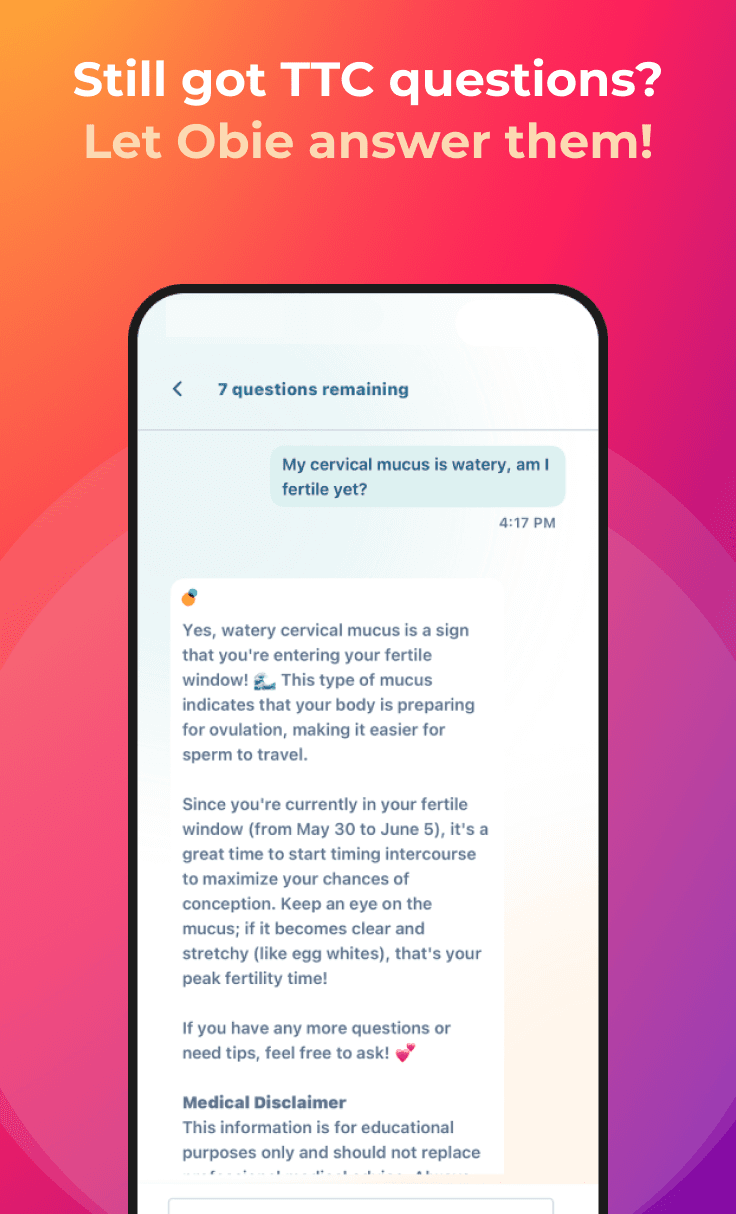Psychological Well-being nd Stress Management: Supporting Fertility Through Mental Health
Obie Editorial Team

When preparing for pregnancy, focusing on mental well-being is just as important as addressing physical health. Stress, anxiety, and emotional well-being play a significant role in fertility, conception, and pregnancy outcomes. By actively managing stress and improving mental health, you can create a more supportive environment for conception.
How Stress Impacts Fertility
Research shows that chronic stress can interfere with reproductive function. According to Rooney and Domar (2018), psychological stress can affect hormonal balance, ovulation, and sperm quality. While occasional stress is normal, prolonged stress may disrupt the body’s ability to conceive.
Stress influences fertility through several biological pathways:
- Hormonal Disruption: Stress triggers the release of cortisol and other hormones that can suppress the reproductive hormones responsible for ovulation and sperm production.
- Irregular Menstrual Cycles: Women experiencing high levels of stress may have irregular or missed periods, making it harder to track ovulation.
- Reduced Sperm Quality: Chronic stress has been linked to decreased sperm count, reduced motility, and increased DNA damage in sperm.
- Lowered Libido: Stress can reduce sexual desire, further complicating conception efforts.
The Mind-Body Connection
Rooney and Domar’s (2018) research highlights the powerful connection between mental well-being and fertility. They found that individuals undergoing fertility treatments experienced higher success rates when they participated in stress-reducing activities such as yoga, mindfulness, and cognitive-behavioral therapy (CBT).
By reducing stress, you can improve hormone balance, increase ovulation regularity, and create a more favorable environment for conception.
Practical Strategies to Manage Stress and Support Fertility
Incorporating stress-reducing techniques into your daily routine can have a positive impact on fertility. Here are some actionable steps to improve your mental well-being:
1. Practice Mindfulness and Meditation:
- Meditation, deep breathing exercises, and mindfulness techniques can reduce anxiety and promote relaxation.
- Apps, guided meditation resources, or yoga classes can provide helpful starting points.
2. Engage in Regular Physical Activity:
- Exercise is a powerful stress reliever that also improves blood flow, hormone balance, and overall health.
- Activities like yoga, walking, swimming, or dancing can provide both physical and mental benefits.
3. Build a Strong Support System:
- Talking openly with friends, family, or a counselor can help manage emotional strain.
- Support groups for individuals facing fertility challenges can provide understanding and practical advice.
4. Prioritize Sleep and Rest:
- Quality sleep is essential for hormone regulation and stress recovery.
- Aim for 7-9 hours of restful sleep each night, and establish a consistent bedtime routine.
5. Consider Cognitive Behavioral Therapy (CBT):
- CBT techniques have been shown to reduce anxiety, improve coping strategies, and promote emotional well-being during fertility treatments.
- Therapists specializing in fertility counseling can provide personalized strategies for managing stress.
6. Explore Acupuncture:
- Acupuncture has been shown to reduce stress hormones and improve blood flow to reproductive organs.
- It may be a beneficial complementary therapy when combined with other stress-reducing strategies.
7. Journaling and Creative Outlets:
- Expressive activities such as journaling, painting, or music can provide a healthy outlet for emotions and reduce anxiety.
Partner Involvement in Stress Management
Stress management is often more effective when both partners are actively involved. Encourage your partner to join mindfulness practices, exercise routines, or counseling sessions to foster mutual support during the fertility journey.
Final Thoughts
Stress is an unavoidable part of life, but managing it effectively can improve your fertility and emotional well-being. By incorporating practical stress-reducing techniques into your routine, you can create a healthier mental and physical environment for conception.
Reference: Rooney, K. L., & Domar, A. D. (2018). The relationship between stress and infertility. Dialogues in Clinical Neuroscience, 20(1), 41-47.








